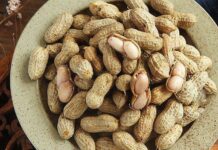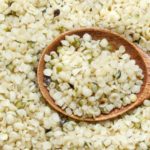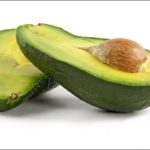There are numerous causes of constipation, including dehydration, lack of exercise, stress, and an unhealthy diet. Here, we’ve compiled a list of 10 natural laxative foods that can help prevent constipation effectively.
1. Chia Seeds
According to medical doctor Nguyen Thuong Hanh from Bac Ninh General Hospital, as consulted by hellobacsi, chia seeds play a significant role in preventing constipation. They are an excellent source of dietary fiber. The US Health Research Institute reports that chia seeds are especially rich in fiber, containing up to 11 grams of fiber per 28-gram serving.
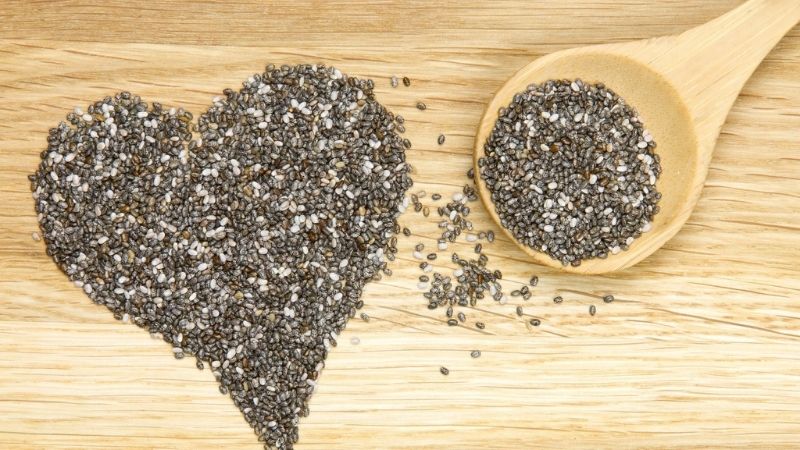 Berries also have natural laxative properties that are good for digestion
Berries also have natural laxative properties that are good for digestion
The fiber in chia seeds helps to soften and loosen stool, making it easier to pass.
2. Flaxseeds
According to hellobacsi, as advised by medical doctor Nguyen Thuong Hanh from Bac Ninh General Hospital, flaxseeds are rich in omega-3 fatty acids, which are beneficial in treating and improving constipation symptoms.
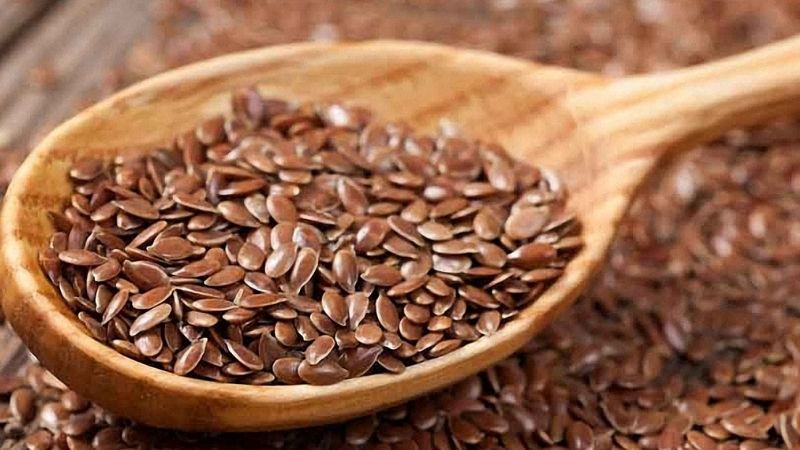 Flaxseeds are rich in omega-3 fatty acids, which improve constipation symptoms
Flaxseeds are rich in omega-3 fatty acids, which improve constipation symptoms
Additionally, flaxseeds are a good source of fiber, which is beneficial for digestion and excretion. A study by the University of New Mexico found that one tablespoon (about 10 grams) of flaxseeds provides 2 grams of fiber, along with 1 gram of lignans, a type of plant compound with potential health benefits.
3. Berries
Berries, such as strawberries, blueberries, and raspberries, are relatively high in fiber and are therefore a top choice among natural constipation remedies. Additionally, berries have natural laxative properties that are good for digestion.
 Berries have natural laxative properties that are good for digestion
Berries have natural laxative properties that are good for digestion
Specifically, 152 grams of strawberries provide 3 grams of fiber. A 148-gram serving of blueberries offers approximately 3.6 grams of fiber, while 144 grams of raspberries provide 7.6 grams. According to Healthline, women need around 25 grams of fiber per day, while men require 38 grams. Consuming the recommended amount of fiber can help strengthen your body’s ability to prevent chronic digestive issues.
4. Beans
Beans, including kidney beans, black beans, and soybeans, are an excellent source of fiber. The abundant fiber in beans helps stimulate digestion and acts as a natural laxative. Those suffering from constipation are advised to include beans in their daily meals.
 Beans are rich in fiber, which stimulates digestion and acts as a natural laxative
Beans are rich in fiber, which stimulates digestion and acts as a natural laxative
Consuming beans can increase the production of butyric acid, a short-chain fatty acid that functions as a natural laxative. It also acts as an anti-inflammatory agent, reducing gut inflammation and potentially preventing digestive disorders and constipation.
5. Yogurt
Yogurt is a naturally fermented dairy product. It contains probiotics, beneficial gut bacteria that offer various health benefits, including improved immune function and digestive health. During fermentation, a portion of the lactose in yogurt is broken down into simple sugars, and these sugars are converted into organic acids that stimulate digestion.
 Yogurt contains probiotics that improve digestive health
Yogurt contains probiotics that improve digestive health
Additionally, yogurt has anti-inflammatory and antibacterial properties. Hence, it is often recommended for those with gut issues or constipation.
6. Castor Oil
Castor oil has long been used as a traditional folk remedy for its natural laxative properties. Derived from castor seeds, castor oil is rich in ricinoleic acid, which has a powerful laxative effect, according to Dutch nutrition experts.
 Castor oil contains ricinoleic acid, which has a powerful laxative effect
Castor oil contains ricinoleic acid, which has a powerful laxative effect
The ricinoleic acid in castor oil increases intestinal movement, improving gut function. Research suggests that castor oil can relieve constipation by softening stools and reducing defecation stress.
7. Green Vegetables
Green vegetables, such as spinach, broccoli, and kale, are effective in alleviating constipation. They are rich in magnesium and fiber while being relatively low in calories.
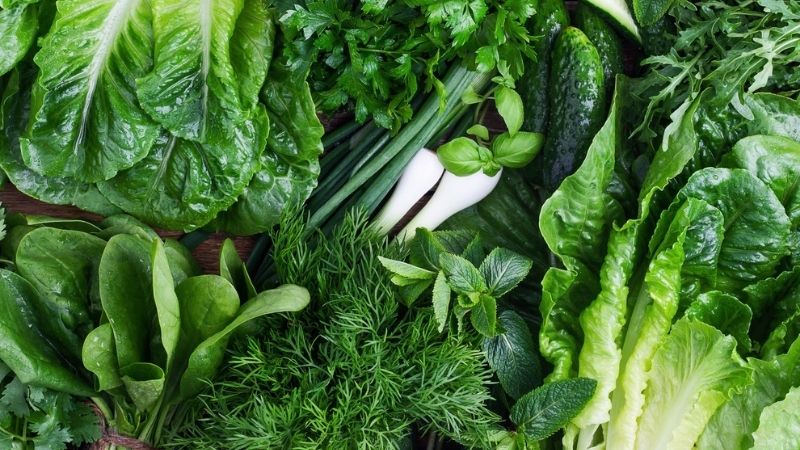 Green vegetables are rich in magnesium, which is beneficial for digestion and excretion
Green vegetables are rich in magnesium, which is beneficial for digestion and excretion
Magnesium is a key ingredient in many modern laxatives, and green vegetables are an excellent source of this mineral, aiding in stool softening. Healthline suggests that consuming green vegetables is an effective way to relieve constipation.
8. Honey
Honey has excellent antibacterial and anti-inflammatory properties and is commonly used to treat digestive issues such as colitis and gastritis. Additionally, honey contains amino acids that support gut function, making it easier to pass stool and effectively treating colitis and constipation.
 Honey contains amino acids that support gut function
Honey contains amino acids that support gut function
Honey is also a potent prebiotic, nourishing the beneficial bacteria in the gut and promoting digestive health.
9. Kiwi
Kiwi has been shown to have laxative properties, offering a convenient way to relieve constipation. Nutrition experts recommend that those suffering from constipation regularly consume kiwi, as it provides 5.3 grams of fiber per 177-gram serving, along with vitamins and minerals beneficial for digestion.
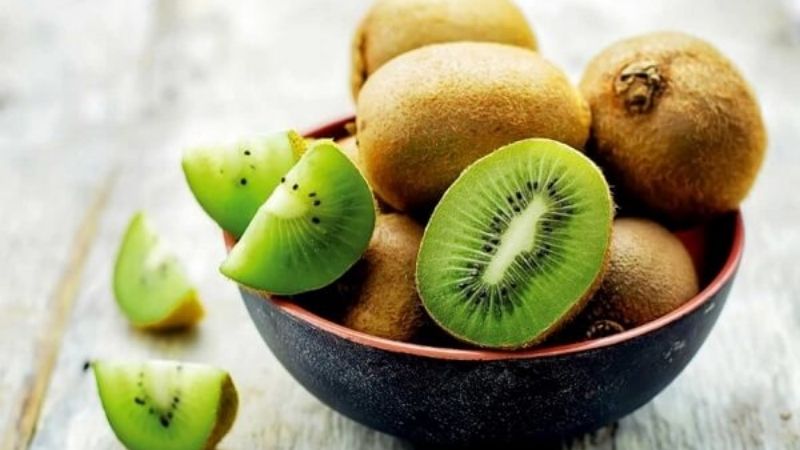 Kiwi contains pectin, a natural laxative
Kiwi contains pectin, a natural laxative
Kiwi also contains pectin, a compound known for its natural laxative effects. It works by increasing intestinal movement, stimulating bowel movements, and reducing constipation.
10. Aloe Vera
Aloe vera is commonly used to treat constipation. It contains compounds called anthraquinone glycosides, which draw water into the gut and stimulate intestinal movement.
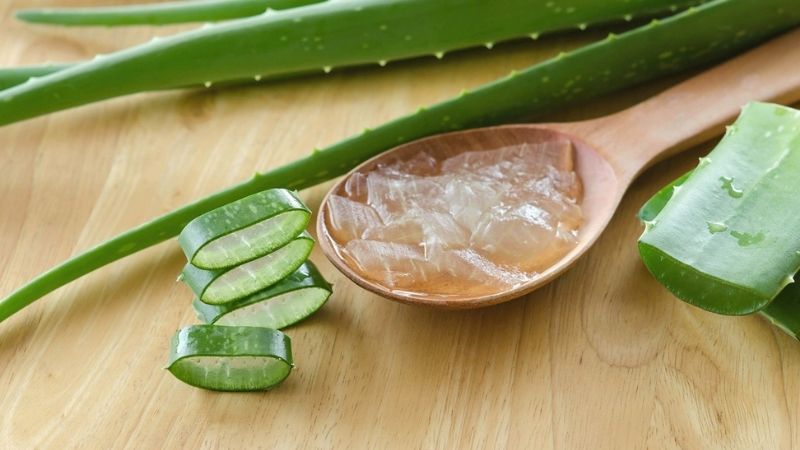 Aloe vera is commonly used to treat constipation
Aloe vera is commonly used to treat constipation
A study confirmed the effectiveness of aloe vera by creating a preparation using rhubarb, plantain, and aloe vera. The researchers found that this combination effectively softened stools and increased bowel frequency in constipated individuals.
Notes on Using Natural Laxative Foods:
- Choose Clean Foods: Opt for clean, safe foods with clear origins and expiration dates.
- Simple Cooking: Favor steamed or boiled dishes that retain nutrients. Avoid excessive use of oil, butter, and margarine, as they may worsen constipation.
- Avoid Hard-to-Digest Foods: Those with constipation should also limit hard-to-digest foods like fried foods and carbonated drinks.
- Moderate Consumption: Avoid overeating laxative foods daily. Maintain a balanced diet and distribute your meals evenly throughout the day. Be mindful of your body’s needs to prevent constipation from turning into diarrhea.
- Avoid Beans at Night: Consuming beans at night may cause flatulence.
 Notes on using natural laxative foods
Notes on using natural laxative foods
The above list provides 10 natural foods that act as laxatives and support digestion. Hopefully, this article has helped you understand the various food options available to prevent constipation!
Source: hellobacsi













